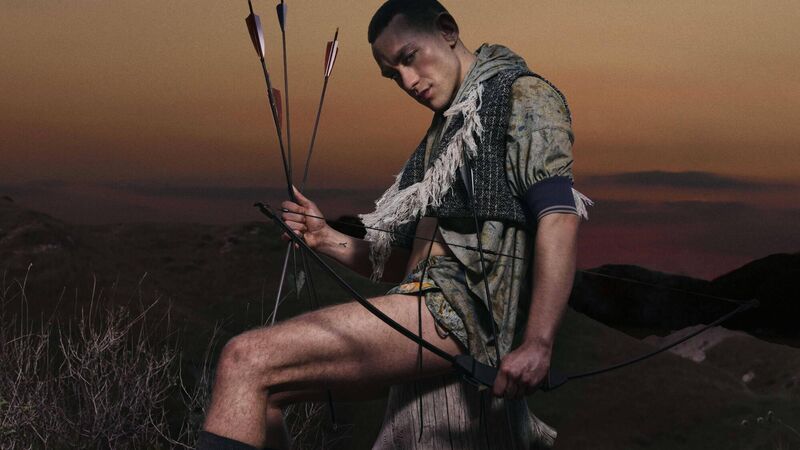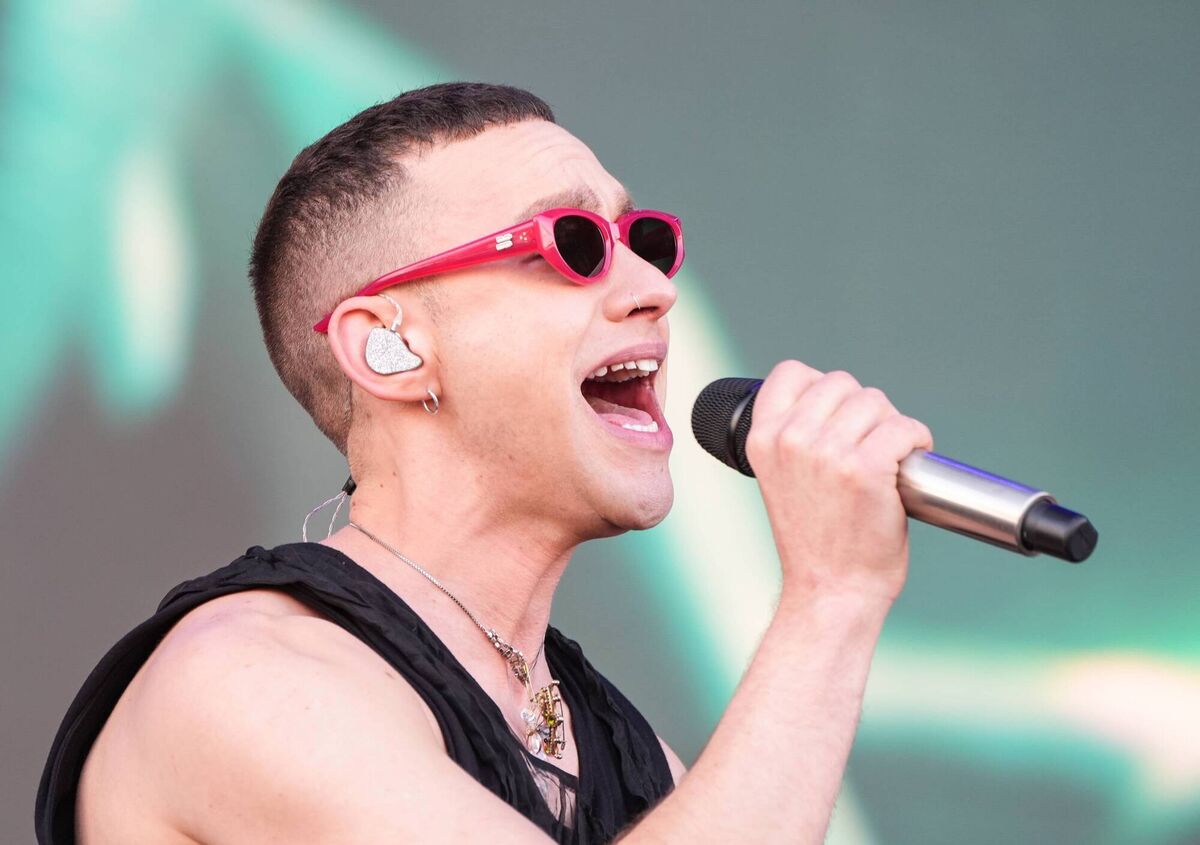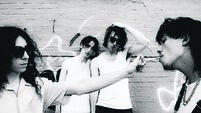Music: 'I'm still talking to my therapist about Eurovision'

Olly Alexander’s debut solo album, Polari, is out now. Image: Polydor Records.
Olly Alexander has been on a dizzying journey over the last few years. From his band Years & Years splitting up and the singer stepping out as a solo artist, to representing the UK during a tumultuous Eurovision last year.
The star is ready to start a new chapter in 2025, and he is diving straight in by releasing his first album under his own name.
“It’s a really unique feeling because I’ve been in this industry and making music for over a decade,” he tells me about the shift to solo work over a video call from London.
“I’m attached to Years & Years and I feel like that is in my DNA. And I never necessarily imagined I would do an Olly Alexander album, but as time went on, it just suddenly felt like ‘Oh, actually, this is something I really want to do.’
“I felt like I was taking all the lessons of the last 10 years and everything I’ve learned and putting it into this kind of debut record, even though I’ve made so many albums already.”
In March 2021, he announced he had parted ways with his Years & Years bandmates Mikey Goldsworthy and Emre Turkmen but it would continue as a solo project. The following year he released Night Call, a fun and campy record, but it was still under the group’s name.
Polari marks his first album under his moniker, but this move ushered in a host of questions about what he sounded like outside of the group. Years & Years’ electronic pop stylings — which would get most dancefloors pulsating — are still present in the new album, as are Alexander’s distinctive vocals, but he has embraced the sound of the 80s more in this project.
He was already a fan of this period of music, but he became further immersed in this world when starring in Channel 4’s 2021 gripping drama about the Aids crisis, It’s A Sin. His influences range from the Pet Shop Boys, Erasure and George Michael to the eccentricity of cinematographer Derek Jarman.
The album title is also deeply connected to Alexander’s personal experience. The secret slang term was used between some gay men to avoid detection when homosexuality was still illegal. It is a concept Alexander first came across when coming out as a gay man and resonated further with when playing Richie in It’s A Sin, where his character grappled with questions about identity, self-expression and community.
He wrote and created the album alongside producer Danny L Harle, another departure from previously creating past albums with his band and a host of writers and producers.
“I think listening to Polari now, I feel like ‘Oh, this is probably the most me sounding record that I’ve ever made’,” he says.
“That was what I was trying to do, just get all my personality and an essence into the songs and the music, and that was the goal.”
Another major shift in his life which influenced the album’s trajectory was Alexander reconnecting with a past partner who he had previously been with a decade ago.
“Lots of them are really about the search for love and returning to love,” the singer, now 34, says about the tracks. “And all of that was because I got back together with my partner. As I was making this album we’d gotten back together, and we had previously been together a decade ago now. But I had always held a candle to hit for him.
“So I just had these epic love songs in my head because I felt like me and my partner, we’ve been on this quite epic love story and our part two is better than the first part and that’s kind of unusual.”
“A lot of songs have a more playful perspective, I suppose,” he adds. “Because I wanted it to feel really open-hearted and joyful, as well as sort of the pain of loving someone as well.”
It has not been plain sailing for the pair as their reconnection has prompted some difficult self-reflection and conversations, and the stakes feel higher for them this time round.
“I tried to at first reconnecting really slowly because I really love him, and we just became friends again,” Alexander explains.

“But what was nice, I’m older now, I’m in my mid-30s basically and we met each other in our 20s. And now we’ve been able to make use of all the lessons we’ve learnt from growing up a bit and maturing and come back together.
“So much about life is timing. So I had that really in my head too like, fate and timing. So much has to align with you to really make something work, and then when it works, you’re like ‘Wow, this is crazy’.”
The singer has settled more into the relationship and jokes he has become more domesticated, with nights spent cooking and doing jigsaws as opposed to more chaotic periods in his younger years.
Having support around him was particularly important to Alexander last year as he navigated a Eurovision which was mired in controversy. In the lead-up to the contest, there were calls for Israel to be excluded from the competition amid the war with Hamas in Gaza, while pro-Palestinian protests took place outside the arena in Swedish host city Malmo as acts performed. The competition also saw a contestant disqualified and complaints made by participants.
“I’m still talking to my therapist about Eurovision now,” Alexander admits with a chuckle. “That is my advice to any artist is to get a good therapist, it doesn’t matter if you’re doing Eurovision or not. But I definitely leant on my therapist before, during and after Eurovision.”
Despite being in the public eye for over a decade, the singer says the level of intensity attached with the song contest took him aback. He has not been told who is being lined up as the UK entry for 2025, but advises them to invest in their mental health early on.
Alexander finished in 18th place after receiving 46 points for his performance of his dance-infused track ‘Dizzy’ at the Malmo Arena in Sweden last May. Although it was a tense period for the singer, he is still really grateful to have taken part.
“There’s nothing in the world like Eurovision,” he says. “Just the fact that I got to take part alone and see it from the inside and experience it was amazing.
“And I met so many amazing people, and I got to put on a performance that I really loved, despite the fact that obviously I didn’t do that well in the competition, I was really proud of it.”
Alexander provided his feedback on his experience of Eurovision, which the BBC fed back to the European Broadcasting Union, which organises the competition, and the body commissioned an independent review following the controversy.
A series of “development areas” were announced in July. Among these is developing a duty of care protocol for those working or participating in the contest, and a code of conduct to ensure everyone is aware of their obligations and responsibilities, the organisation said at the time.
“To be fair, a lot of these conversations are still in their infancy and people don’t know necessarily the best way to have the best measures for artists,” Alexander says.
“But it’s not even just the artist, it’s for the teams and for the crews. It’s for everybody working at these things, because everyone gets affected.
“I think mental health just should be a priority, and I think it is in some cases, but it isn’t in others.
“Something like Eurovision is such a huge undertaking, but I think they’re taking steps in the right direction.”
Polari by Olly Alexander is out now.







